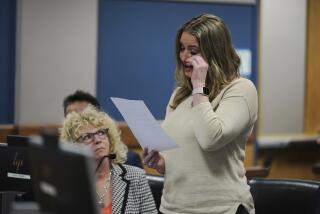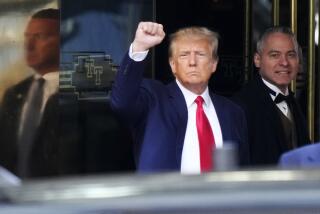Where lawyers are the new heroes
The American public does not, for the most part, see its lawyers as heroes. Not so in Pakistan, a country where the basic institutions that create the rule of law barely function, even during the intermittent periods when civilian leaders manage to wrest some power from the military.
So when we joined the “long march” to Islamabad in support of the rule of law this month and watched massive crowds cheering and filling the air with rose petals as they thronged a procession of lawyers, we made sure we took pictures.
We hope Washington took notice as well, because the United States remains deeply misguided in not backing these lawyers during this crucial and fragile moment in Pakistani history.
The specific goal of the lawyers is straightforward: They seek the restoration of the chief justice and more than 60 appellate judges deposed by President Pervez Musharraf after he unilaterally suspended the Constitution last November. More broadly, the lawyers want an independent judiciary and a government that promotes the rule of law and respects the country’s 1973 constitution.
But on another level, the movement also represents the emergence of a re-imagined professional identity among Pakistani lawyers as “agents of the law rather than agents of the state” -- to borrow a phrase from Harvard law professor Noah Feldman -- agents who are capable of checking executive power.
However, even after Musharraf’s violent crackdown on lawyers and activists last winter, Washington continues to tacitly support him -- while refusing to take a stance on the lawyers’ cause -- because it sees him as a trustworthy ally who cooperates with U.S. military operations along the Afghanistan border.
The time for U.S. ambivalence on the lawyers’ movement has long passed. When President Bush meets with Pakistani Prime Minister Yusaf Raza Gillani during his visit in July, he should emphasize just how seriously the U.S. takes any attempt to undermine the rule of law, and ask why the judges issue remains unresolved.
The long march, a rolling convoy of thousands of lawyers, activists and political party affiliates, began in the city of Multan and traveled more than 650 miles to the gates of the parliament in Islamabad, making time along the way for speeches and rallies. In every city where the caravan passed, the public reception was overwhelming. From the sides of roads, from storefronts and restaurants, from farms and private residences, hundreds of thousands of Pakistanis cheered the lawyers as conquering heroes and joined in chants of “Go, Musharraf, go!” and “We want rule of law!” By the time the march reached the parliament, its ranks had swelled to an estimated 200,000.
All this should be great news for the U.S. in its war on terrorism. The emergence of an empowered lawyer class with a popular mandate to check the executive would help put Pakistan on a path toward stable democratic governance. Further, the lawyers’ movement has provided an alternative outlet for discontent with autocratic rule, robbing right-wing Islamist groups of their claim that only they can bring about just and disciplined governance. In a country that many Americans know only as a land of mullahs and military rule, nothing has united the Pakistani people more than the promise of genuine constitutional democracy.
Over the long term, the lawyers’ most important challenge will be to cement their new identity as defenders of the rule of law and, in turn, sustain their popular mandate for serving in this role. After decades of judicial subservience to the executive, this will be no easy task. Much depends on whether they can demonstrate real political efficacy in the current crisis by restoring the deposed judges.
We spent the journey to Islamabad with a group of student activists, perched on top of a bus adorned with colorful posters and stickers. Waving Pakistani flags as traditional songs of protest blared over a loudspeaker, the students displayed a remarkable passion for building democratic institutions.
“One person can’t come and save us,” said Sundas Hurain, a law student who took part in nonviolent protests, sit-ins and a hunger strike over the last year. “If we build processes and institutions, if we build a democratic process in its true sense, then leaders can’t do much damage. We don’t want leaders but processes above leaders.”
On top of our rickety bus, as the crowds threw us bottled water and flashed victory signs, we were moved by the outpouring of public support for Pakistan’s newly heroic legal community.
In the U.S., where the public casually disparages its lawyers, it is easy to take for granted the enormous public benefits of an empowered legal community. Because the rule of law operates through repetitive, ingrained social practice, its invisibility in the U.S. is perhaps the best sign of its health.
But in places like Pakistan, where democratic institutions remain fragile, the rule of law still needs its champions. Those who stand in its defense deserve our wholehearted support and our applause.
More to Read
Sign up for Essential California
The most important California stories and recommendations in your inbox every morning.
You may occasionally receive promotional content from the Los Angeles Times.










